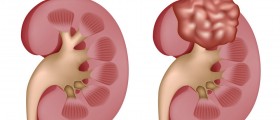
Introduction
The number of women affected with cancers of genital organs is increasing day by day. It is crucial for each woman to take some preventive measures in order to avoid difficulties associated with cancers. The most critical measure is to regularly visit a gynecologist and do all of the important tests. Blood analysis, Pap tests, transvaginal ultrasound tests and other screening tests of the genital and anal area are necessary for an early diagnosis and possible prevention of cancers.
Risky groups of women should do these tests regularly and at times suggested by the doctors. Symptoms
Some common symptoms may not be the sign of a cancer but each woman should always react if she has any such symptoms just to be sure. There are however some signs that indicate something is seriously wrong. Cancers of genital organs include: cervical, vaginal, ovarian cancers, cancer of the Fallopian tubes and the most common type of cancer is uterine cancer.
One of the alarming symptoms is irregular bleeding. Bleeding can be excessive or appear between the menstrual periods. Since cancers most often develop during menopause, this bleeding should definitely be a sign for seeing a doctor. However, bleeding can be caused by some other problems, such as painful sexual intercourse. Whatever the cause is, it is recommended to visit a doctor. Any changes in menstrual periods should be reported to the doctor. One of the cancer symptoms is excessive bleeding accompanied by strong pains. If it lasts longer than a day, excessive bleeding may be an alarming sign. Yet, some hormonal imbalance, polyps and infections can also have bleeding as symptoms.
Women face problems of a gastrointestinal nature such as pains in the stomach, difficulties in digestion, diarrhea or constipation. Cancers press the surrounding organs and cause such problems. If the symptoms last three or four weeks, it is a warning sign.
Cancers also have symptoms associated with urinary infections. Pains in the bladder, burning sensations and pains while urinating, frequent and improper urinating, are due to the cancer pressure on urinary organs sometimes.
A noticeably larger stomach that appears swollen can indicate cancer of the ovaries.
If there are any changes in the appearance of the vagina, they should be reported to the doctor. Any sores or lumps, changes in the color, are indicative of some precancerous conditions. Vaginal secretions change the color, smell and thickness, itching outside and inside genital organs, are also warning symptoms.
Ovarian and uterine cancers are also marked by pains in the lower back or lower stomach.
The above-mentioned symptoms do not necessarily mean that the organs are affected with cancer should be the green light for any woman to see a doctor.

















Your thoughts on this
Loading...